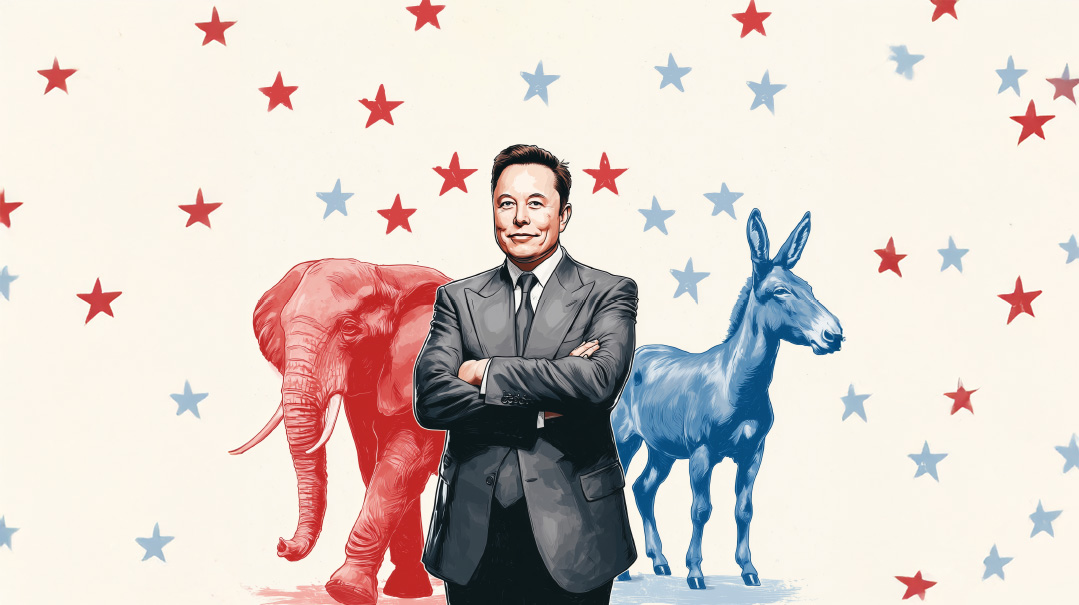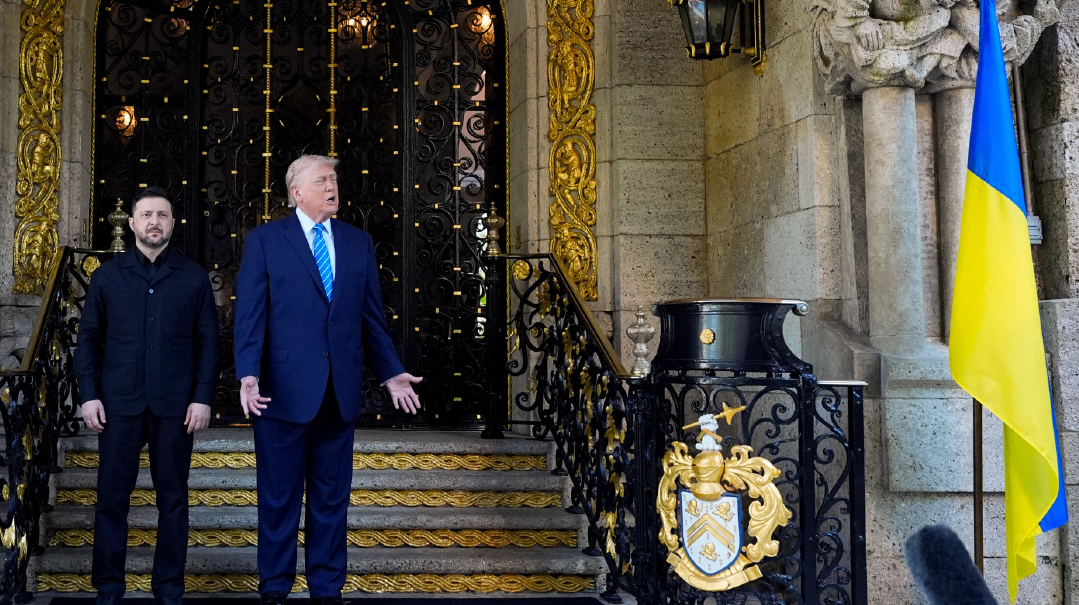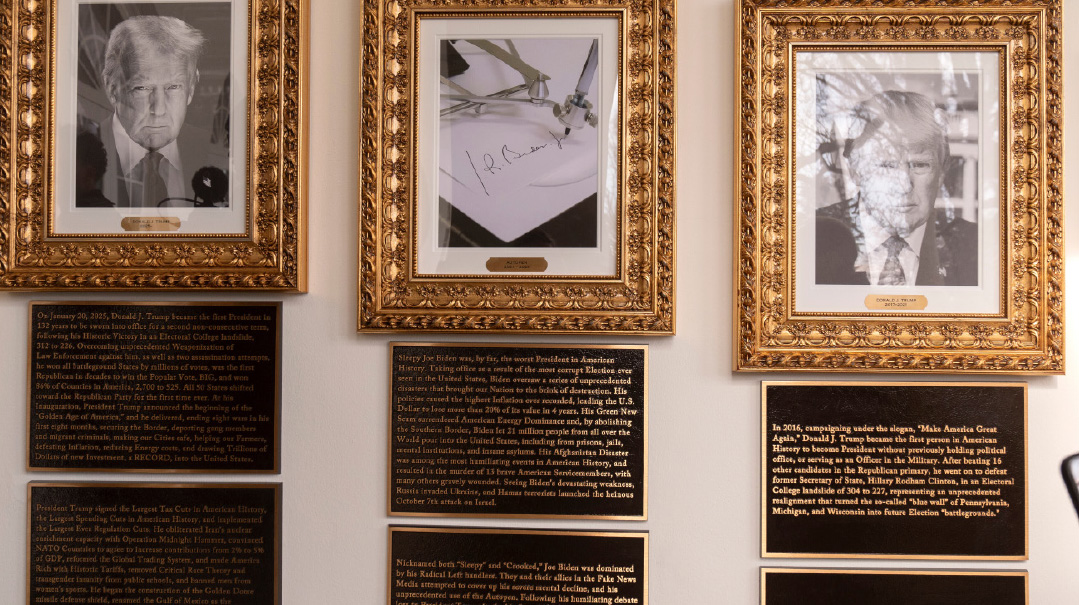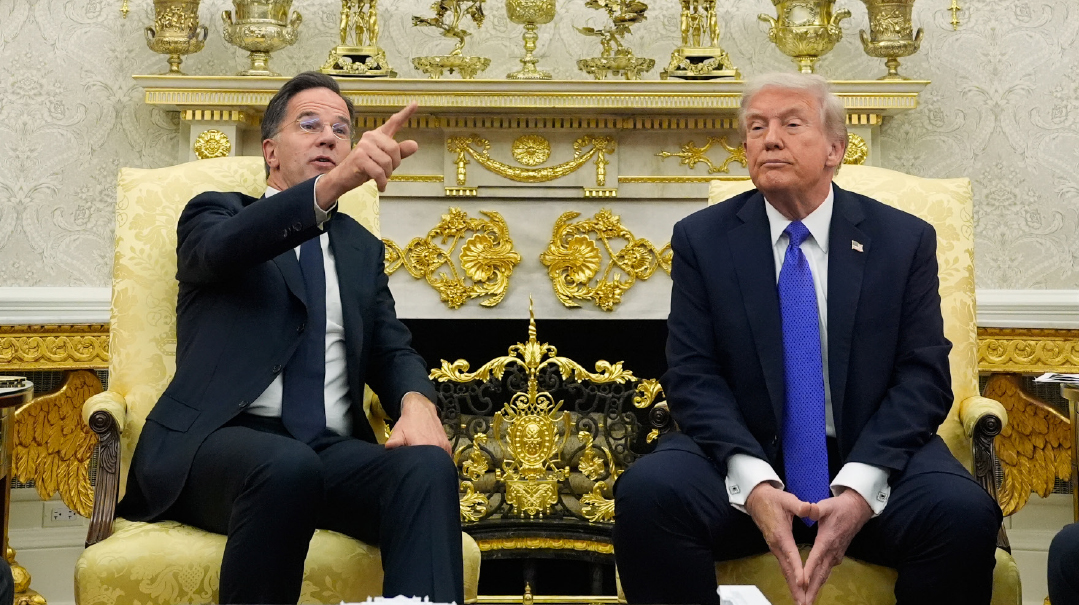Musk Takes on the Uniparty
| July 8, 2025How the Big Beautiful Bill pushed the world’s wealthiest man into politics

E
lon Musk, the billionaire entrepreneur known for launching rockets and building electric cars, has officially launched a new political party. It’s called the “America Party” (probably because that’s the name that’ll trigger Trump the most). The move marks a sharp political turn for Musk, who until now preferred to shape politics from the outside, mostly through tweets, memes, and the occasional fantasy about colonizing Mars.
Now he’s stepping into the fray with something more structured: a political machine designed to challenge what he calls the “uniparty,” the two-headed Republicrat-Democan monster, which pretends to argue by day and unites to spend your money by night.
Why did Musk decide to start his own political party? The short answer is because he could. And how did it play out in practical terms? Musk’s break with the GOP and the MAGA movement began simmering earlier this year, but the final straw came in June when President Trump backed what he called the “Big Beautiful Bill,” packed with $5 trillion in new spending and tax reforms. Musk, an avowed fiscal hawk, blasted the plan as economic suicide dressed as patriotism.
Think about it: Musk spent months building the Department of Government Efficiency to tear down the rest of government, and in the process axed thousands of bureaucrats, and clawed back possibly as much as $160 billion in waste, only to watch Congress pass a budget nearly 50 times larger without blinking.
A month ago, Musk tweeted: Is it time to create a new political party in America that actually represents the 80% in the middle? Of the 5.6 million users who voted, 80% said yes, and that was enough for Musk to decide to launch another poll. Over the July 4 weekend, Musk ran another informal poll on X, asking his followers if they agree the time has come to launch the “America Party.” The poll drew 1.2 million “votes,” and the proposal was approved by 65% of the “electorate.” And just like that, a new player entered the American political chat.
Musk is pitching the America Party as centrist, rational, and solutions-oriented, offering a political home to the disillusioned from across a broad spectrum, targeting fiscally conservative Democrats, socially moderate Republicans, and politically homeless independents. Basically, the 43% of Americans who identify as neither R nor D and have been waiting for someone to return their calls. Or he’s just tapping into the zeitgeist, same as any serious third partier.
The question is whether this can satisfy the unrealized dreams of tens of millions of the political homeless.
Easier Said Than Elected
Musk isn’t the first billionaire to think, You know what this country needs? Me, just in ballot form. So far, history hasn’t been kind to those who tried.
Ross Perot? A footnote. Howard Schultz? Cold brew got more votes. Even Teddy Roosevelt, an actual former president, couldn’t pull off a successful third-party launch with a Bull Moose and everybody’s favorite mustache. So what makes Musk feel he’s so special?
If launching a new political party sounds like a long shot, that’s because it is. America’s two-party system isn’t held together by nostalgia, it’s fortified by design. From rigid ballot access laws that vary wildly by state, to debate commission rules that exclude outsiders, campaign finance structures built for the DNC and RNC, every lever of the system is tilted in favor of the duopoly.
The establishment isn’t just guarding the goalposts. They designed the field, hired the refs, and sold the naming rights to their own donors. Ballot access laws, debate rules, and donor pipelines are all designed to keep outsiders out, and insiders cozy. Even with Elon’s billions, trying to crack this system would be like trying to plug a Tesla charger into a horse-drawn buggy: even if no one is stopping you, it doesn’t mean you’re gonna get far.
So what’s Musk planning to do differently?
Hacking Congress
Here’s how this is different from your average “angry billionaire” vanity project. Musk isn’t trying to win the White House in 2028 with a candidate who spent 17 hours in Iowa. What Musk is aiming for is far more surgical and potentially more disruptive. He’s targeting a handful of key Congressional seats, just enough to build a voting bloc powerful enough to block bloated legislation, force fiscal discipline, and grind the “uniparty” agenda to a halt. He’s not looking to win power; it’s about denying it to those who waste it. It’s about leverage.
How would this work? Musk isn’t running to “win Congress.” He’s running to hack it. The plan is to target two to three vulnerable Senate races and eight to ten competitive House seats, especially in states where third-party candidates can win with a mere 30% to 35% of the vote.
If successful, the America Party could become the swing vote in key legislation. As Musk himself explained in a tweet: “One way to execute on this would be to laser-focus on just two or three Senate seats and eight to ten House districts. Given the razor-thin legislative margins, that would be enough to serve as the deciding vote on contentious laws, ensuring that they serve the true will of the people.”
Death by Paperwork
The biggest enemy here isn’t Trump, Mamdani, or AOC. It’s paperwork. Bureaucratic, soul-sucking, deadline-imposing paperwork. It’s lawsuits, signature drives, state deadlines, campaign finance disclosures, and endless legal hurdles that make DMV lines look efficient.
Each state has different rules for getting on the ballot. Some require 50,000 handwritten signatures, notarized and submitted by a guy named Steve on a Tuesday. Others demand you form a party committee, elect officers, and publish a newspaper ad, even if no one reads newspapers anymore. In some states, you need to collect signatures from every congressional district, including the one accessible only by kayak. And get ready to provide evidence of “sustained political activity,” which may or may not include arguing with people on Facebook. The rules are complex, bloated, and subject to change.
Musk has money, influence, and a massive online army. But even he needs boots on the ground, lawyers on retainer, and candidates who don’t melt under spotlight. That’s where most third parties flatline: not in ambition, but in administration.
Still, this hinges on one thing: voter trust. Musk has fans. He has reach. But will average voters in places like Omaha or Akron pull the lever for a candidate backed by a man who once named his child after a Wi-Fi password?
The Spoiler Alert
Can it work? A handful of seats, strategically placed, could turn the America Party into a swing vote bloc that determines budget bills, cabinet confirmations, and even foreign policy. That’s not a fantasy. It’s how politics works in coalition-heavy constituencies.
Like all third parties, Musk risks being branded a spoiler, handing wins to the very side he says he’s trying to hold accountable. If the America Party pulls more votes from Republicans, especially fiscal conservatives, it could hand Dems some surprise victories. Conversely, the AP could pull votes from never-Trumpers who’ve soured on the Dems, handing Trump a greater majority. Or if the Dems continue lurching left, their saner voters could be looking for a new home.
If Musk’s party attracts independents and moderates in purple districts, this could complicate both parties’ math. If it actually wins a seat or two, this could force candidates in either party to pivot toward his platform.
Besides the parties, who might be at particular risk? Swing-state senators with narrow win margins (think Arizona, Nevada, and Wisconsin); House incumbents in districts with high-tech, libertarian, or independent leanings (Colorado, Texas suburbs, Northern Virginia, and Silicon Valley–adjacent zones); and incumbents whose out-of-control-spending votes send both deficit hawks and swing voters running for the alternative.
Think of Musk less as a candidate and more as a disruption algorithm who occasionally jumps up in the air and yelps. His presence forces every candidate to answer new questions:
Why does government spending keep ballooning?
Why are there still career politicians in Congress?
Who actually benefits from the current system?
While this could end in one of a bewildering array of potential outcomes, the one that matters most is already happening. Even if he doesn’t win a single seat, the narrative shift alone could reshape campaign platforms, commercials, and debate stages.
The America Party is here. And whether it flames out or flips Congress, it’s already doing what Musk does best: forcing the conversation to go where it wasn’t supposed to. Like space travel, electric cars, and sending doge coin to the moon, this political mission might seem absurd. Until it isn’t.
Musk has disrupted rockets, cars, payments, and social media. Politics could be his final frontier, or his biggest misfire. Best-case scenario — or worst, depends where you stand — Musk’s party could swallow up the Dems and emerge as the de facto “never Trumper” option. Imagine beyond 2028, with neither Trump nor Musk eligible to run, this pair of competitors take on the respective roles of old-fashioned party bosses who pull the strings over how the levers are pulled.
Unless this entire venture is just one giant Muskian bluff, a high-stakes gambit meant to send a loud, unmistakable message to Trump. By threatening to siphon off votes, donors, and momentum, Musk may simply be trying to pressure the president into recalibrating his stance on government spending. If Trump tacks back toward fiscal restraint, this theory goes, Musk could pull the plug on the America Party just as quickly as he launched it.
With Musk, the goal isn’t always to win, it’s to control the narrative. Launching a political party might not be about ballots at all. It could just be about reminding Trump that there’s a bigger megaphone in town, and forcing Trump to listen to voices he thought he’d already silenced.
(Originally featured in Mishpacha, Issue 1069)
Oops! We could not locate your form.







